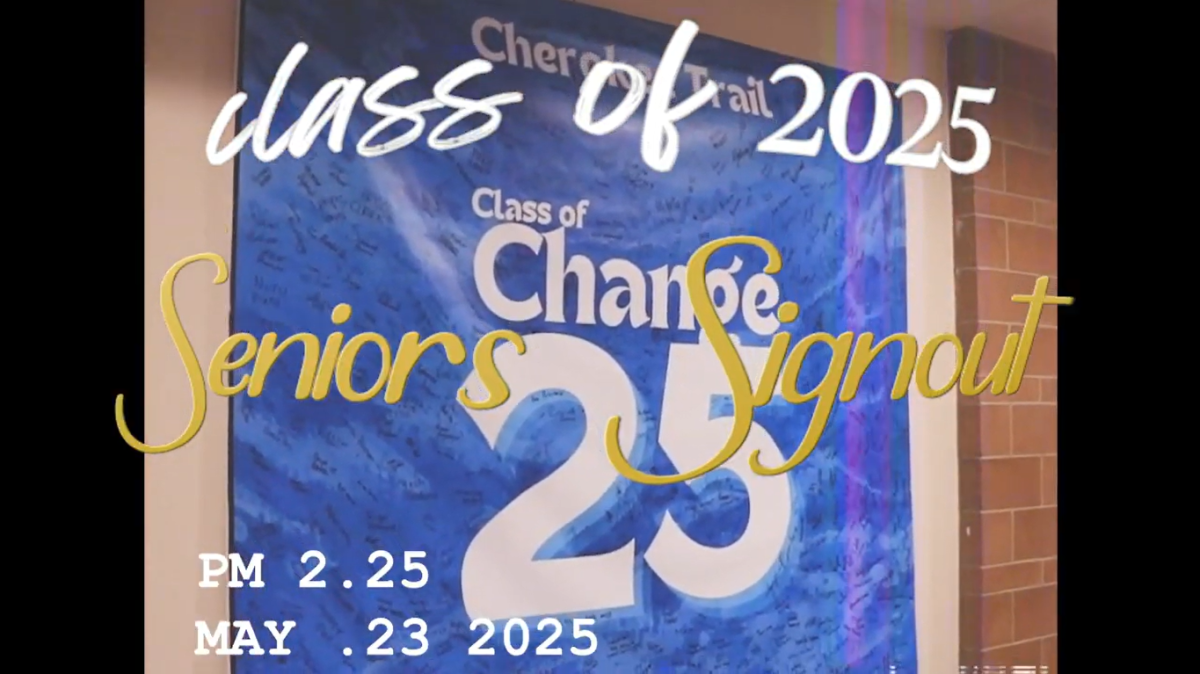Teacher Spotlight: Ms. Scheffel and AP Chem
While speaking with a student, Ms. Julie Scheffel smiles and laughs. “The most rewarding moments are when a student emails me after they graduate, and they realize [taking AP Chem] was worth it,” said Scheffel.
February 12, 2020
Take a moment and think about everyone who you’ve thanked over the last week. It doesn’t have to be every time, but be as specific as you can. Your parents, when they give you something you needed (or wanted). The waiter who refilled your drink at dinner last night. The stranger who held the door for you on your way to work. The customer who tipped you a little extra. We live in a world where kind gestures are uncommon and deserved acknowledgment.
Now take another moment, and count all the times you’ve thanked a teacher in the last week. Not just a little thank you, but a big thank you, a longer-than-three-second thank you, telling them about how much you appreciate all the time they put into their jobs. Chances are that you can count these on one hand. Often times, the people who spend their entire week making lesson plans, going to endless meetings, and staying late to help tutor students in need go months without a simple thank you, an acknowledgment of all they do for our school.
A prime example of this is Ms. Julie Scheffel, teacher and Science Department coordinator. In addition to the standard 40-hour workweek, she works “easily an extra ten or twenty hours,” said Ms. Scheffel. Students in her class have seen the fruits of her labors, from over twenty AP Exam practice problems to Saturday study sessions the weekend before a test. She spends her free time finding ways to help her students, going to convention after convention, meeting after meeting. Scheffel works tirelessly for the kids she teaches, and it’s clear in their smiles when they walk in the door that not only does she help them in school, but in their lives as well, having built relationships with everyone.
Still, thank-yous are few and far between. “Teaching…is such a thankless job,” said Scheffel. “I don’t think teachers get thanked enough…Mostly around holidays, and the end of the year. But that’s really it.”
It’s hard to work when your effort isn’t recognized. In an article by Harvard Business Review, author Annie McKee says “There’s nothing worse than feeling unseen and unheard in the workplace.” For many unrecognized teachers, that statement is true. But when asked if she enjoys teaching, Scheffel laughed and said, “Of course I do. I do, even though I know students contemplate, you know, ‘Why did I take this class?'”
Her enviable optimism about her students and her class is what draws many students to her office during their off-periods. She is always there to lend a hand, to explain a problem, and to work with you.
But while those times come close, those aren’t Scheffel’s favorite moments. The most rewarding, she says, are “the emails I get after students graduate high school, when they realize that it’s all worth it.”
Now, some teachers think thank-yous aren’t too important. AP Chem teacher and author of Amazon’s #1 New Release in Chemistry AP Chemistry Crash Course, Adrian Dingle, had this to say when asked in an email about his opinion regarding whether or not it’s important that teachers are thanked: “I have no interest in students thanking me. If our work were truly valued we’d be paid more – that’s the ‘appreciation’ that matters.”
Okay, so we’re only high schoolers, and it’s a little difficult for us to impact legislation, but there are ways that you can make a change. For example, you could donate to The Teacher Salary Project, a non-profit organization that is raising awareness about the impact that under-paying educators have on their lives. Or, if donating isn’t your thing, you can go sign this petition that urges Colorado legislators to get more funding for our public schools.
And if neither of those is something you have the time to do, then try just a quick thank-you to your teacher. Those can work, too.

![While speaking with a student, Ms. Julie Scheffel smiles and laughs. "The most rewarding moments are when a student emails me after they graduate, and they realize [taking AP Chem] was worth it," said Scheffel.](https://cthstoday.org/wp-content/uploads/2020/02/scheffel-smiling-900x600.jpg)


